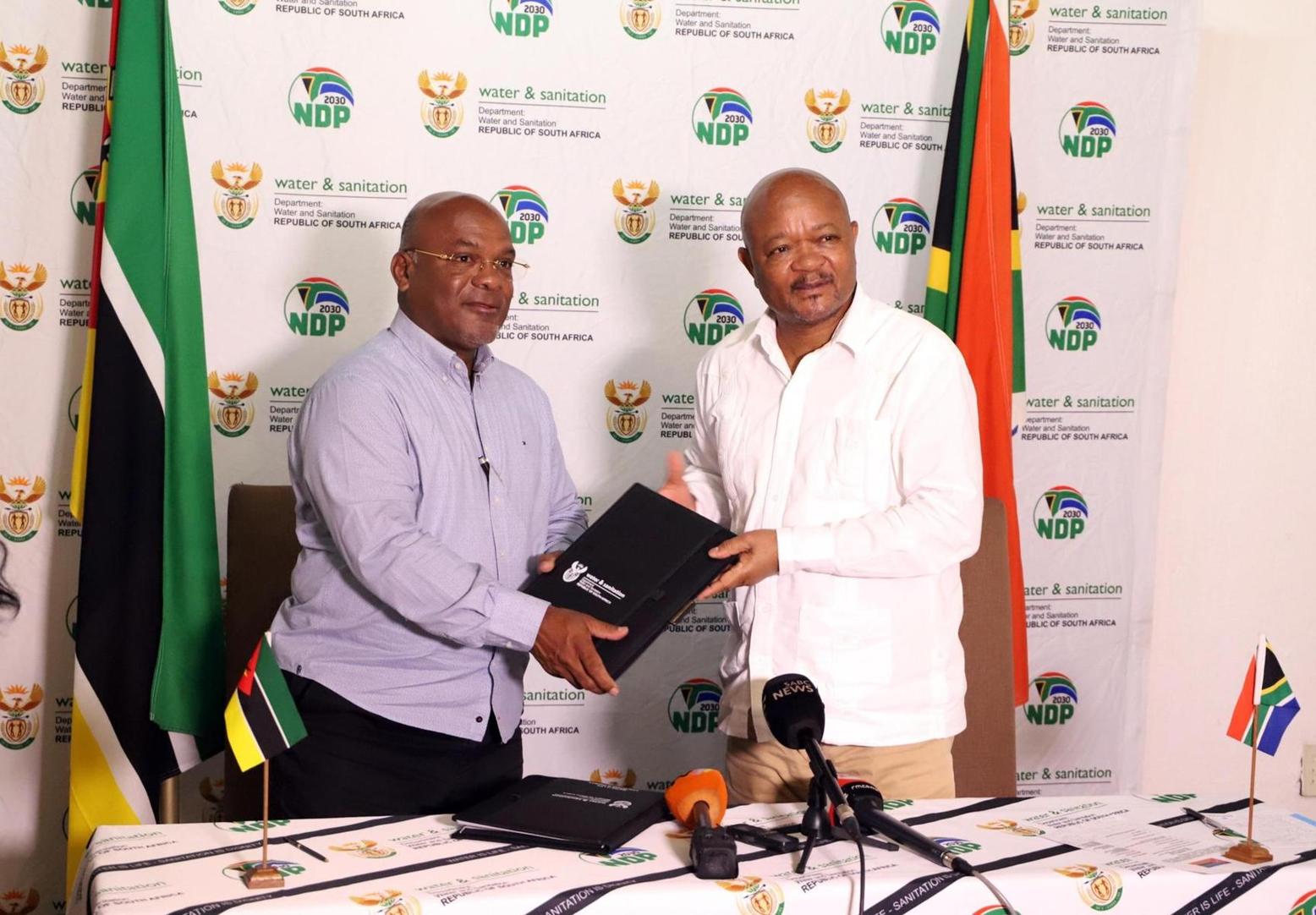Africa-Press – Mozambique. The governments of South Africa and the Kingdom of Eswatini, by means of the Incomáti Basin Regulatory Authority, have undertaken to control discharges from the Driekoppies and Maguga dams into Mozambique, in order to avoid floods, with their concomitant destruction of infrastructure and potential loss of life.
The guarantee was offered in Malelane, South Africa, by Chairman of the Board of Directors of the Regulatory Authority for the Waters of the Incomáti Basin, Archie Thobejante, within the framework of a visit there. on November 24 and 25. by Mozambique’s Minister of Public Works, Housing and Water Resources , Carlos Mesquita .
At the meeting, the delegations emphasised the need to strengthen existing cooperation and bilateral relations of the 1996 Joint Water Commission (JWC) Agreement. The JWC acts as technical advisor to the parties on all technical matters related to development and use of water resources of common interest.
South Africa and Mozambique share the Incomati and Maputo river basins, which supply water to citizens residing along the corridor in the two countries.
The ministers reaffirmed their commitment to resolve the Maputo/Usuthu issue concerning water security for communities in the common border areas, and to work closely with relevant stakeholders to that end.
At the meeting, they also noted that annual discharges of the floods from the Pongolapoort Dam have not taken place for the last five years due to the very low water levels in the dam resulting from the prolonged drought in the region. The purpose of the flood releases is to replenish the downstream off-channel river basins and lakes for the socio-environmental sustainability of the floodplain stretching from South Africa to Mozambique.
The drought has now ended, and water levels in the dam have recovered. Flood releases recommenced on November 14, with peak discharge expected to enter Mozambique around December 6 at the rate of about 200 cubic metres per second.
The parties also agreed on the need to collaborate in improving water supply and sanitation in the village of Ressano Garcia in Mozambique.
The ministers highlighted the importance of compliance with the minimum transboundary flows at the Ressano Garcia measuring station and further encouraged the Komati Basin Water Authority (KOBWA), the Inkomati-Usuthu River Basin Management Agency (IUCMA) and ARA-Sul to work together to ensure that the 2.6 m3/s (cubic metres per second) flow provision in the Incomati-Maputo agreement is adhered to.
For the ministers, current progress in key projects is remarkable, such as the installation of six radial gates in the Corumana Dam, rehabilitation of the bottom outlet of the Massingir Dam, and mobilisation of funds for the construction of the Moamba Major Dam in Mozambique and Goboshe in South Africa.
The ministers further pledged their support for the newly created Incomáti-Maputo Water Commission (INMACOM) and theLimpopo Watercourse Commission (LIMCOM),to promote cooperation between the three parties to ensure the development, protection and sustainable use of water resources shared by member states, and concluding the amendment of the LIMCOM agreement, which will empower the Council of Ministers as LIMCOM’s highest decision-making body.
The meeting confirmed the continued and healthy cooperation between the two leaders, especially in the management of transboundary water resources. The decision was taken that the Joint Water Commission should continue to meet at least once a year, while ministers will meet every two years to share updates and discuss the progress of the commission’s work.
For More News And Analysis About Mozambique Follow Africa-Press






